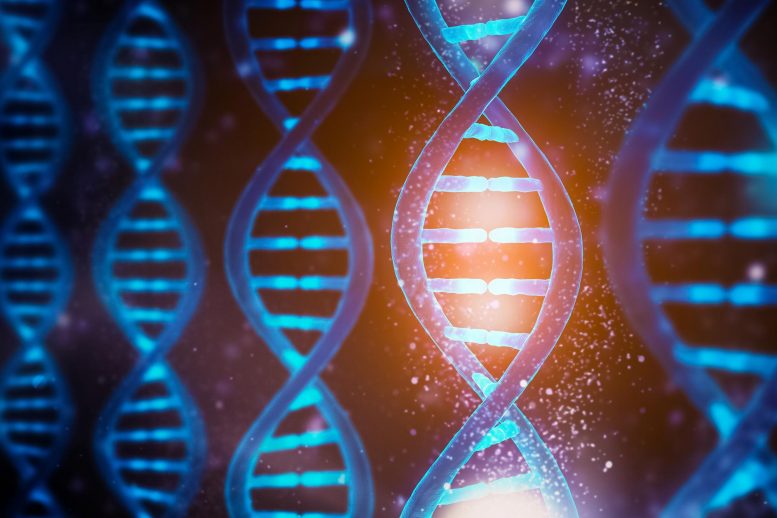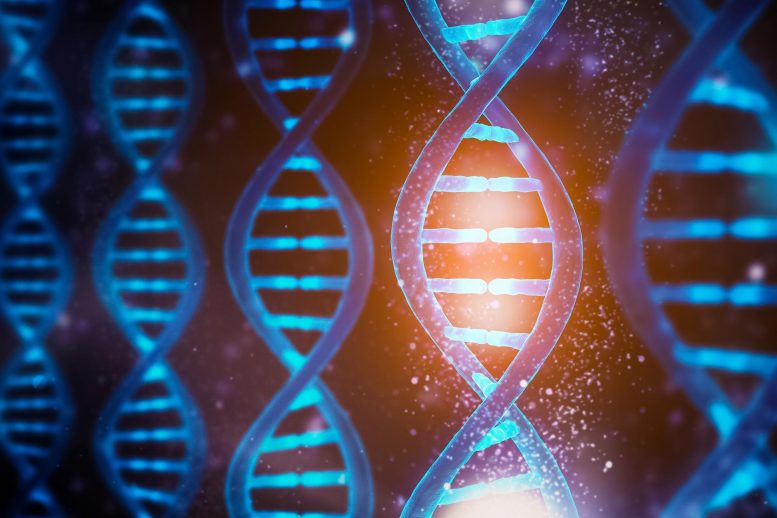

New research has identified the length of genes as a central factor in the aging process, with long genes playing a significant role in both the acceleration and deceleration of aging. This insight shifts the focus from specific aging genes to the broader impact of gene length, offering new avenues for understanding and potentially addressing age-related changes and diseases.
What causes our body to age? Four complementary studies, including one from Northwestern Medicine, have come to the same conclusion: long genes.
In a new paper, the scientists write about their findings and how they advance existing knowledge about aging.
“Long genes that become less active with age may be the central cause of aging in our bodies,” said co-corresponding author Thomas Stoeger, assistant professor of medicine in pulmonary and critical care at Northwestern University Feinberg School of Medicine and a member of the Potocsnak Longevity Institute. “Our finding advances the field by identifying a single phenomenon that connects most existing knowledge about aging and makes this underlying phenomenon measurable.”
Gene Length and Biological Aging
The paper, which highlighted the shared findings of four international research groups, was published in Trends in Genetics on March 21. The groups are the first to arrive at the conclusion that most aspects of biological aging relate to gene length.
Conditions known to accelerate aging decrease the activity of long genes. This includes smoking, alcohol, oxidative stress, and UV-irradiation. Conditions known to slow aging increase the activity of long genes such as caloric restriction. Also, genes that are very short or very long encode for cellular processes known to change in aging such as the formation of cellular energy, protein synthesis, and transmission of neural signals.
The Link Between Long Genes and Aging
“The regulation of genes is one of the most central processes of life, and our four studies explain why the activity of long genes in particular change in aging,” Stoeger said. “In addition to aging, we show that the same finding occurs in patients with Alzheimer’s disease, an age-associated disease. Our findings help us rethink the causes of neurodegenerative diseases such as Alzheimer’s disease. Because genes with neural function are unusually long, we hypothesize that the decreased activity of long genes cells fails to produce sufficient biomaterials to properly maintain neural function.”
The trigger of aging is a physical phenomenon related to the length of the genes and not to the specific genes involved or the function of those genes, the scientists report. The original findings were based on a mixture of molecular data from humans, mice, rats, killifish, C. elegans, D. melanogaster, and experiments in mice. Previously scientific research sought to identify specific genes responsible for aging. This new view differs from prevailing biological approaches that study the effects of single genes.
DNA Damage and Aging
Long genes simply have more potential sites that could be damaged. The scientists compare it to a road trip — the longer the trip, the more likely that something will go wrong. And because the physiological roles of some cell types rely upon genes that are longer than those of other cell types, some cell types are more likely to be affected by DNA damage that accumulates as they age. During aging, genes take damage as the strands of DNA that contain the genes break. This stops cells from reading the information and activating the information contained in the gene. The longer the gene, the more likely it is that at least one DNA damage site exists and stops the gene’s activation.
Because neural cells are known to rely on particularly long genes and are slow or non-dividing, they are especially susceptible to the phenomenon. Many of the genes involved in brain loss during aging and associated with Alzheimer’s disease are exceptionally long. Pediatric cancer patients, who are cured by DNA-damaging chemotherapy, later suffer from premature aging, including neurodegeneration.
Reference: “Time is ticking faster for long genes in aging” by Sourena Soheili-Nezhad, Olga Ibáñez-Solé, Ander Izeta, Jan H.J. Hoeijmakers and Thomas Stoeger, 21 March 2024, Trends in Genetics.
DOI: 10.1016/j.tig.2024.01.009
The research from Northwestern was supported by grant R00AG068544 from the National Institute on Aging of the National Institutes of Health.

